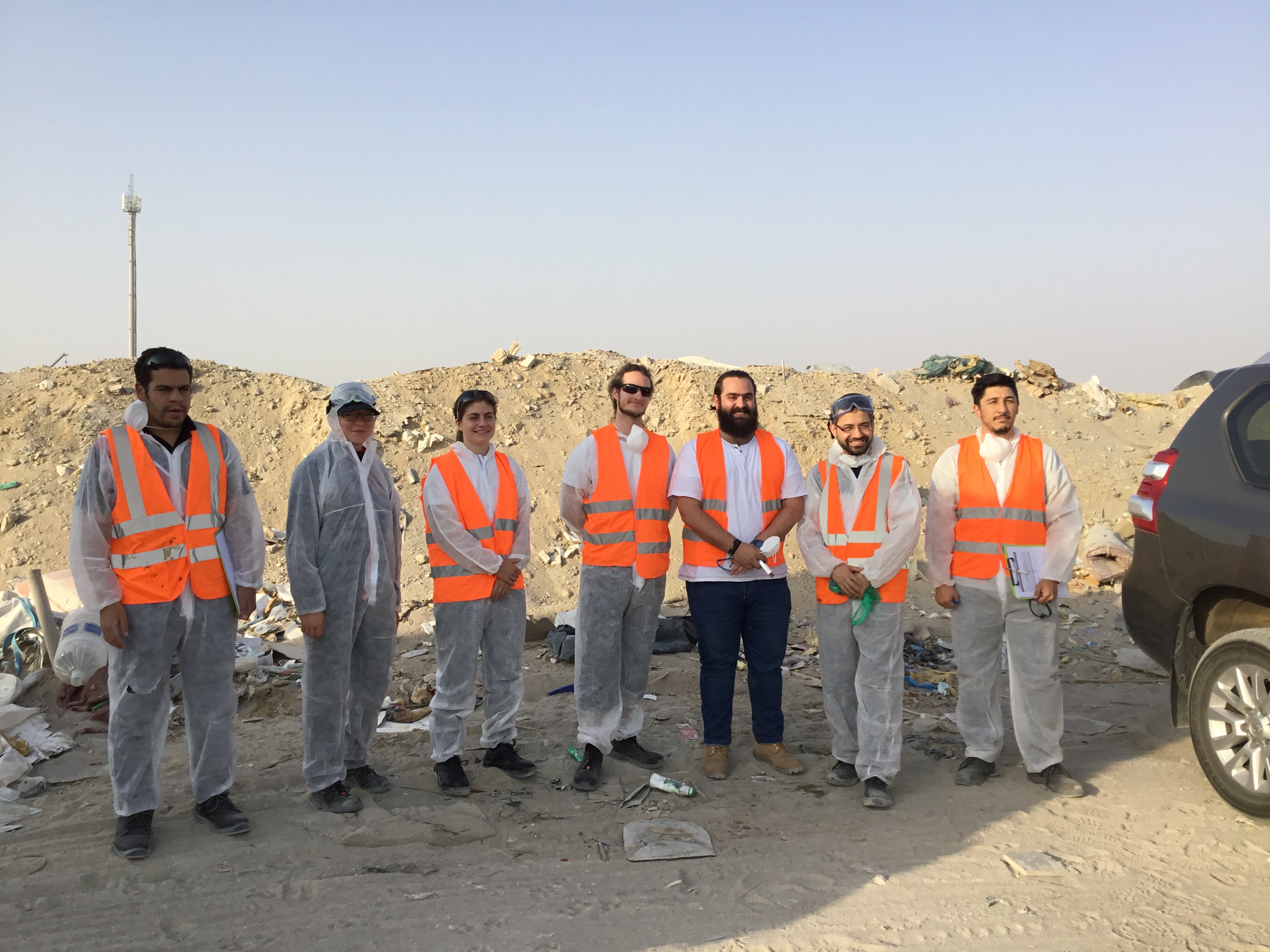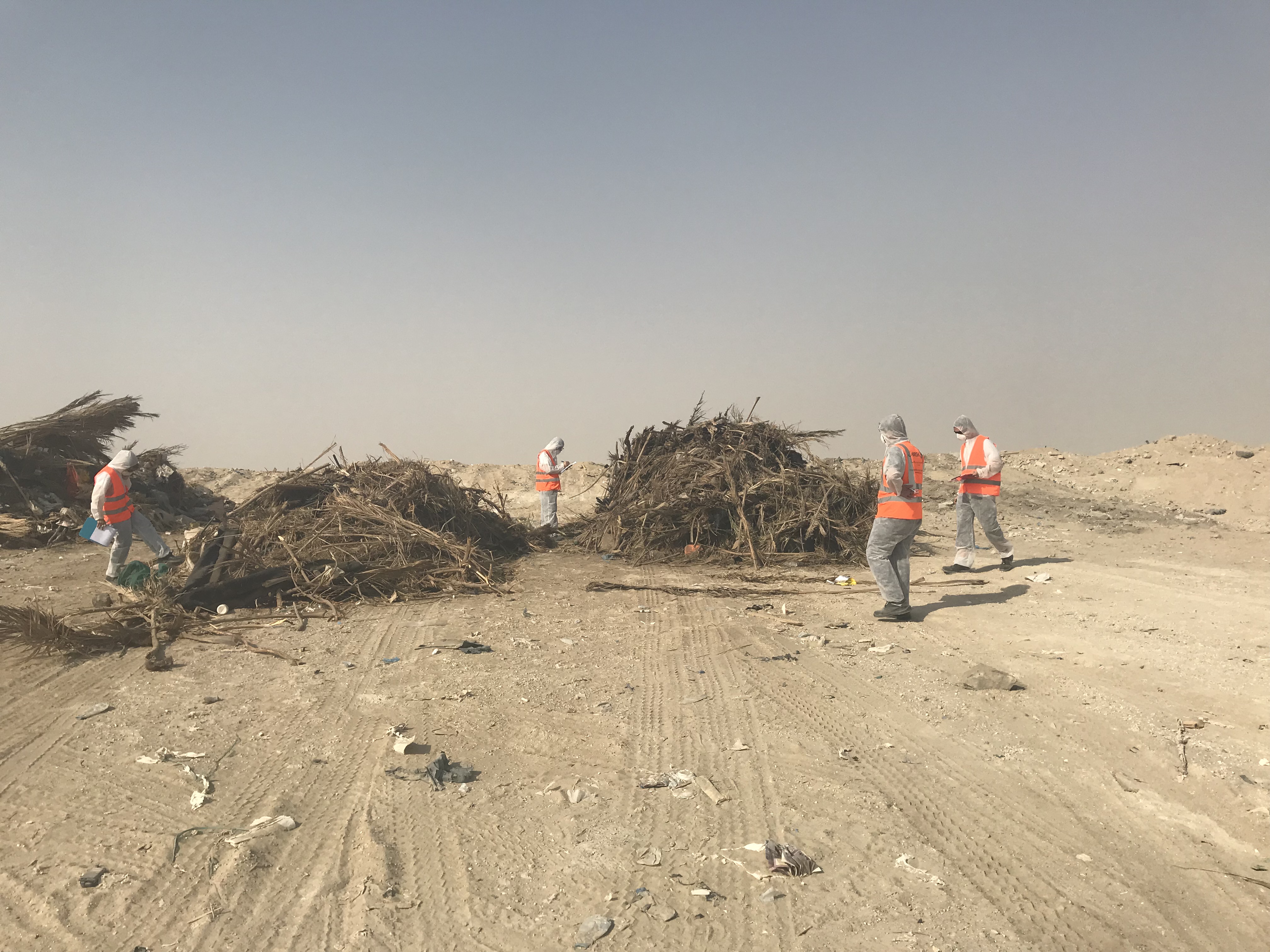Data collection under the desert sun – Fraunhofer UMSICHT surveys waste from the agricultural sector in Kuwait
Since January 2017, Fraunhofer Institute for Environmental, Safety and Energy Technology (UMSICHT) in Sulzbach-Rosenberg is working on a project to develop a waste management plan for the state of Kuwait. The last months were dedicated to conduct a large number of interviews and collect samples from various sectors to evaluate the current waste management and characteristics in the country. Hospitals, companies from industrial sectors as well as the waste management industry have already been surveyed.


Since January 2017, Fraunhofer Institute for Environmental, Safety and Energy Technology (UMSICHT) in Sulzbach-Rosenberg is working on a project to develop a waste management plan for the state of Kuwait. The last months were dedicated to conduct a large number of interviews and collect samples from various sectors to evaluate the current waste management and characteristics in the country. Hospitals, companies from industrial sectors as well as the waste management industry have already been surveyed. German staff of the department of Recycling Management at Fraunhofer UMSICHT as well as representatives from German project partners travel to Kuwait on a regular basis throughout the project to undertake training sessions, supervise the data collection and coordinate the project with the local authorities.
The latest field trip from the 2nd until the 13th of July 2018 had the goal of knowledge transfer and data collection of wastes from the agricultural sector as well as public green areas. As for the training sessions, workshops were held, both for the Kuwaiti project team and for cooperating government authorities. A special focus of these workshops was on the safe storage and disposal of hazardous agrochemicals, especially leftovers from pesticides. Additionally, the potential for utilization of organic wastes from the sector was discussed intensely. Animal droppings or crop residues can for instance be used to generate energy or products such as fertilizers, possible treatment options being composting or fermentation. Due to a lack of such treatment facilities in Kuwait, the bigger part of these materials are currently disposed on landfills. This practice does not only mean a loss of valuable resources, which could serve for plant nutrition, it also leads to the emission of greenhouse gases, stemming from the uncontrolled decomposition of the organic material on the landfill site. All the more encouraging is the pronounced interest and cooperative attitude towards a reconsideration of the waste management on behalf of the Kuwaiti government authorities, including Public Authority for Agriculture and Fishery Resources.
Following the transfer of theoretical knowledge, the German team engaged in hands-on data acquisition together with local team-members. During the current stage of the project, this entails undertaking interviews with farmers concerning their waste management as well as sighting samples of the wastes arriving on the landfills allow for an extrapolation of waste amounts and compositions. During the latter task, Kuwaiti climate proofed to be the main challenge – temperatures currently reaching up to 50 degree Celsius in the shade. As a result, outdoor work needs careful planning and must be completed in the early morning hours as long as temperatures are still bearable.
After the extensive training and various valuable new insights of the joint effort during the last weeks, the local team will continue the data acquisition on site in the weeks to come.
Last modified: